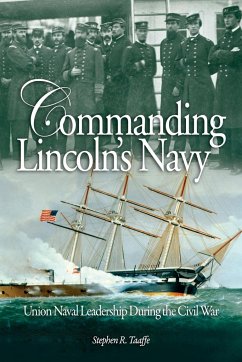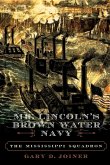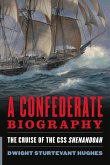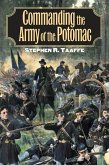The Union Navy played a vital role in winning the Civil War by blockading Confederate ports, cooperating with the Union Army in amphibious assaults, and operating on the Mississippi River and its tributaries. To wage this multifaceted war, Secretary of the Navy Gideon Welles divided the Union Navy into six squadrons. The book examines who Welles assigned to squadron command and why he appointed these officers. Taaffe argues that President Abraham Lincoln gave Welles considerable latitude in picking squadron commanders. Lincoln not only trusted Welles's judgment, but he also understood that the Navy was not as important to the Union war effort militarily and politically as the Army, so there was less of a need for him to oversee closely its operations. Welles used this authority to make appointments to squadron command based on several criteria. Welles factored into his mental calculations seniority, availability, and political connections, but he was most interested in an officer's record, character, and abilities. Although some of Welles's earliest selections left something to be desired, his insight improved markedly as the war continued and he gained a greater understanding of the Navy and its officer corps. Indeed, by the end of the conflict, Welles had become quite ruthless in his search for effective squadron commanders capable of filling the Navy's increasingly difficult missions. In doing so, he contributed greatly to Union victory in the Civil War. The book covers some of the Civil War's most important campaigns and battles, such as the Union assaults on New Orleans, Charleston, Mobile Bay, and Fort Fisher, and the fighting on the Mississippi River.
Hinweis: Dieser Artikel kann nur an eine deutsche Lieferadresse ausgeliefert werden.
Hinweis: Dieser Artikel kann nur an eine deutsche Lieferadresse ausgeliefert werden.








